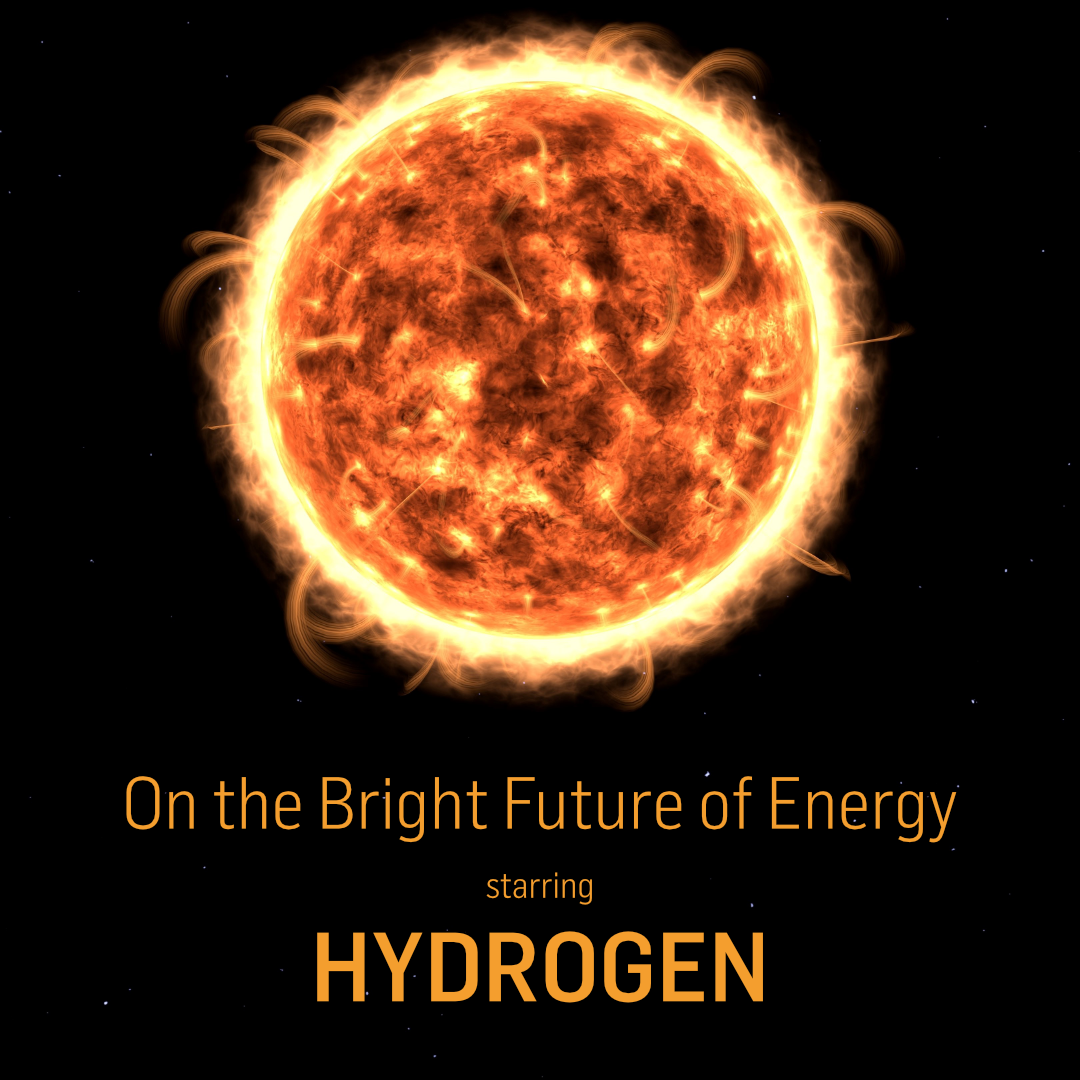HYDROGEN:
The Bright Future of Energy
Hydrogen may well prove to be an absolutely essential fuel of the future. In our pursuit to reach Net Zero by 2050, we soon discovered that not everything can be electrified with battery power.
For example, shipping and aviation are notoriously difficult to electrify, as batteries are quite heavy in relation to the amount of energy they provide – packing enough of them in a ship or plane to traverse an ocean would imply so much weight that no ship could float and no plane could fly anymore. Hydrogen – an extremely light and energy dense fuel – can easily address this problem: it can be used in a fuel cell to generate electricity, or it can be combusted just like gasoline in a combustion engine – the only emission in either case being harmless water vapor. Even in the case of road transport, hydrogen is particularly well suited for long range transportation, as refueling a hydrogen vehicle takes minutes, while charging an EV battery can even take hours.

Another use case for hydrogen would be in industry requiring actual chemical reactions that can’t be substituted by electricity. For instance, in the context of steel production – an industry responsible for about 7% of global CO2 emissions – the very first step is the removal of oxygen from iron ore (which is oxidized in its natural form). Traditionally, fossil fuels were used in this role (mainly coal) as carbon attracts the oxygen from iron ore and forms CO2. Hydrogen can easily be used instead, reacting with oxygen to form water instead of CO2, instead.
Hence, hydrogen is currently enjoying unprecedented political and business support, with various green production facilities expected to go live by the end of the decade. Furthermore, if it reaches economies of scale, it could even become cheaper than gasoline in the 2030s – the whole production and utilization chains remaining entirely carbon free. Read our full paper for a deep dive into the future of the hydrogen economy.
New Research Paper!

Please fill in the form to receive the download link for the paper:
If you are interested in more research from Solactive, sign up to our monthly research newsletter!

